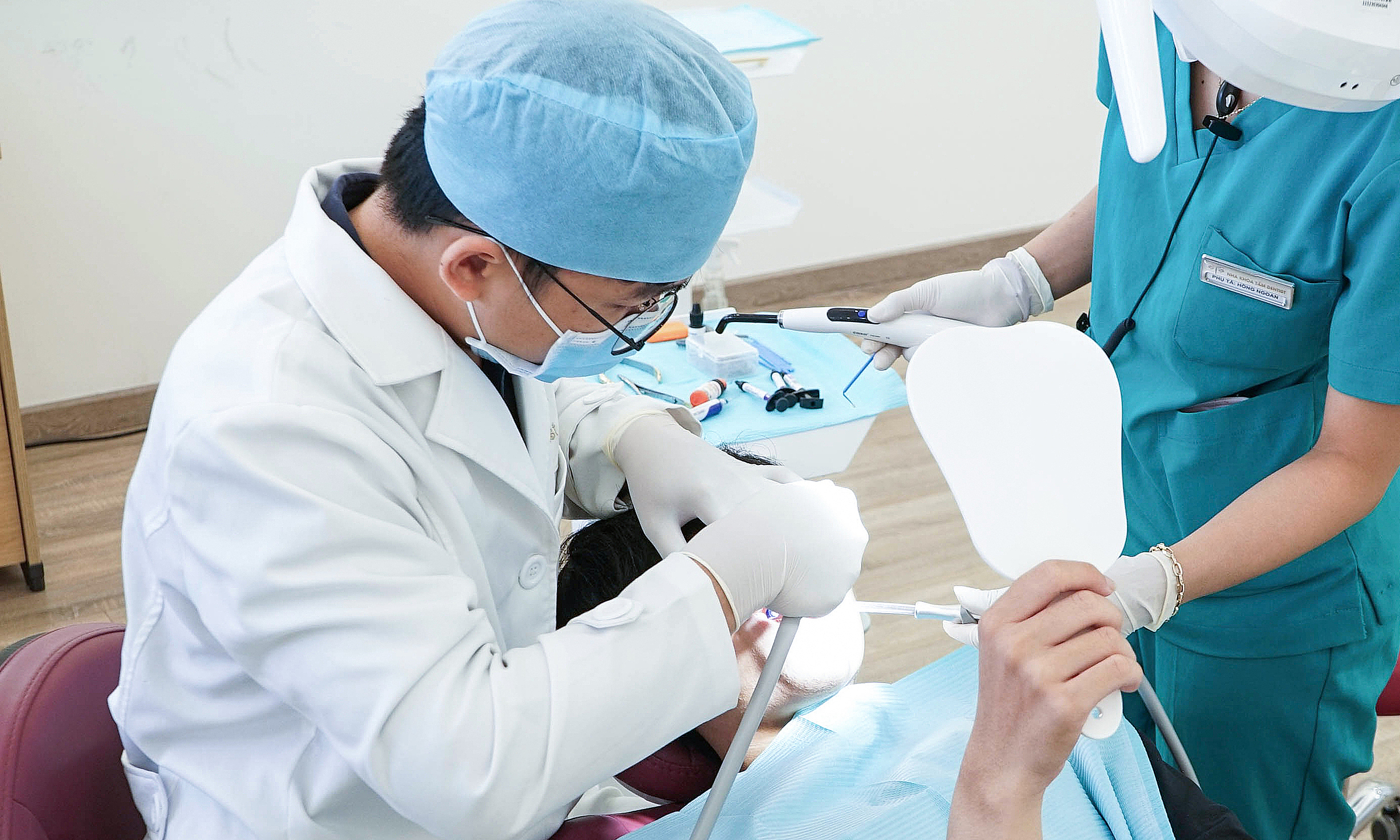A 35-year-old woman in Hanoi went to a local dental clinic for braces to correct her overbite and uneven teeth, which made her self-conscious. However, after about two years, she noticed problems. X-rays revealed her overbite remained, and some tooth roots had detached from the jawbone. The orthodontist hadn't detected the issues early enough, making effective intervention impossible.
At the National Hospital of Odonto-Stomatology, she was diagnosed with a skeletal Class II malocclusion and temporomandibular joint (TMJ) trauma due to excessive orthodontic compensation. She required orthognathic surgery followed by realignment of her teeth.
She underwent two surgeries within 6 months (jaw correction and screw removal), enduring prolonged pain. She is currently relearning to chew, needs more time for her jaw to recover, and continues orthodontic treatment.
Another victim, a 19-year-old student in Ho Chi Minh City, encountered a "dental bandit" after seeing a 15 million VND social media ad for a dental clinic 3 km from her home. Already missing an upper tooth and having severely misaligned teeth and an uneven bite, she was told she needed 4 more teeth extracted before braces could be applied. After 6 months with no improvement, she returned for her next appointment, only to find the clinic gone. The landlord confirmed the clinic had terminated its lease.
At the Tam Dental Clinic, Dr. Nguyen Minh explained that due to missing teeth, the patient needed implants to restore chewing function. Her overbite also required braces and bite adjustment, a process expected to take about two years and cost nearly 50 million VND.
"The patient should have completed treatment in two years, but now faces almost 4 years and triple the initial cost," Dr. Minh stated.
Dr. Minh said many patients are victims of "dental bandits." Clinics exploit the desire for cheap treatment, using aggressive social media advertising. After securing large deposits, they disappear, leaving patients mid-treatment. Alarmingly, these clinics often lack qualified dentists, relying on assistants to perform orthodontic procedures, leading to misdiagnosis and health risks.
 |
A doctor examines a patient's teeth. Photo: Loan Bui |
A doctor examines a patient's teeth. Photo: Loan Bui
Associate Professor Tran Cao Binh, Director of the National Hospital of Odonto-Stomatology in Hanoi, acknowledged the many reputable hospitals and clinics with specialized staff. However, some dental clinics circumvent regulations, employing unqualified personnel, resulting in misdiagnosis and harm to patients. Braces can cause complications: tooth root detachment, root resorption, gum recession, sensitivity, cavities, pulp damage, malocclusion, and TMJ disorders.
Experts recommend seeking treatment only at licensed, reputable hospitals and clinics. Patients should receive a direct examination and treatment plan from a qualified dentist. Throughout treatment, dentists must closely monitor progress. Patients should adhere to follow-up appointments, maintain meticulous oral hygiene, and consult their dentist about a suitable diet.
Le Nga












